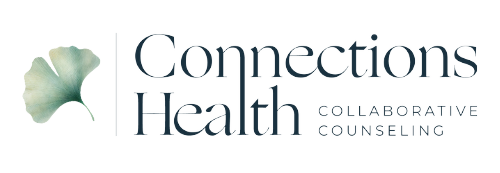Labels can help, but only when you’re ready. Here’s how we gently explore your experience, together.
When an experience is confusing, upsetting, or traumatic, some people find tremendous comfort in being able to name it. Whether it’s identifying a mental health condition, recognizing a particular form of mistreatment, or describing a complex situation as “traumatic,” having a clear label can provide a sense of grounding and validation. However, it’s equally true that not everyone needs or benefits from specific definitions. Below, we’ll explore why labels and diagnoses can be helpful for many individuals, while also acknowledging that healing doesn’t always depend on naming.
The Value of Labels and Definitions
1. Validation and Recognition
When you’ve been feeling alone in your pain, finally hearing a term that describes your experience can be transformative. A label can say, “Yes, this is real, and it’s something others have experienced too.” It reassures you that you aren’t making things up or exaggerating. This recognition can be especially powerful for people who’ve been doubting themselves or have had others minimize what they’re going through.
2. A Path to Appropriate Resources
Labels—when used thoughtfully—can open the door to specialized support and evidence-based treatments. For example, identifying PTSD or naming a certain type of abuse may lead you to specialized therapies, support groups, or legal advocacy that target your unique situation. In this way, a label can function like a map, helping you find the services or professional guidance best suited to your needs.
3. A Shared Language for Communication
When you have a word or phrase that encapsulates your experience, it becomes easier to talk about it with others. Labels can help you discuss your struggles with friends, family, therapists, or even employers. Having a shared language means you don’t have to start from scratch explaining every nuance. Instead, you can say, “I’ve been diagnosed with X,” or “I experienced [this form of mistreatment],” and people have a clearer framework to understand.
4. Feeling Less Isolated
Certain diagnoses or definitions can connect you to communities of people who have gone through similar situations. Whether it’s online forums, local support groups, or social media communities, a label often acts as a keyword that lets you find others who truly “get” it. This shared understanding can foster a sense of belonging, reducing feelings of isolation or shame.
5. Clarity for Self-Understanding
In a world of uncertainty, having a specific label can bring a sense of clarity: “Oh, that’s why I felt so conflicted,” or “So it wasn’t just me—this is a recognized dynamic.” This clarity can lead to more targeted self-reflection, helping you pinpoint what you need to heal and what steps might move you forward. Rather than swimming in a sea of vague discomfort, you have a name that can help organize your thoughts and feelings.
A Balanced Approach to Labeling
While labels can offer many benefits, it’s important to remember that the choice to adopt (or reject) a label is deeply personal. Some people find it empowering to call an experience or condition by name, while others feel confined or distressed by rigid definitions. Even for those who appreciate labels, it may take time to decide when and how to use them.
1. Respecting Individual Readiness
Not everyone is ready to hear or accept a label right away. Some individuals need to explore the complexity of their emotions before naming them, and that’s okay. Therapy can create a gentle space where you can consider whether a specific term accurately captures your experience.
2. Acknowledging the Fluidity of Experiences
Life experiences don’t always fit neatly into diagnostic boxes. Emotional journeys, power dynamics, and personal growth can evolve—so can your feelings about labels. What feels validating at one stage may feel limiting at another, and you have the freedom to revisit (or relinquish) labels as you grow.
3. Avoiding Over-Identification
Sometimes, the label can become an identity rather than a tool. It’s possible to get so caught up in a diagnosis or definition that you lose sight of your strengths, resilience, and uniqueness. When we use labels, it’s healthiest to keep them as descriptors rather than as our sole identity.
How We Approach Labels at Connections
We believe in offering both options and respect. If you want to learn about possible diagnoses, definitions, or terms that might apply, we’re here to provide that information. If you’re seeking a formal assessment or find solace in naming your experience, we can walk you through that process. If, on the other hand, you’re cautious about labeling—or you’ve found that naming something prematurely has been counterproductive—we fully support you in taking a different path.
Our ultimate goal is to create a therapeutic environment that promotes your self-understanding, healing, and empowerment. Whether that journey involves discovering a term that resonates with you or consciously deciding that labels aren’t necessary, we support you in making the choice that feels right.
You Choose What Feels Right
- If You’re Curious About Labels: We’re here to provide information and discuss what those terms could mean for your situation.
- If You’re Unsure: We can gently explore what might be helpful and see if naming something feels empowering or uncomfortable.
If You’d Prefer to Avoid Labels: That’s absolutely valid. We can focus on your experiences, your emotions, and your goals for change or healing without ever assigning a label.
The most important thing is that you feel heard, respected, and supported—regardless of whether you choose to describe your experiences with specific terminology. We’re here to meet you exactly where you are, and we welcome conversations about how you do (or do not) want to use labels as part of your healing journey.
Related Articles
Attending college is a time of self-discovery, growth, and new experiences. But for many, the transition comes with emotional and psychological challenges - ones that can quietly build beneath the surface. One of the most common and misunderstood among them is depression. In a 2021–2022 survey of over 130 U.S. college campuses, 44% of students [...]
Each October, we observe LGBT History Month—a time to honor the courage, resilience, and impact of LGBTQIA+ individuals throughout history. National Coming Out Day reminds us that living openly can be both powerful and vulnerable—and that no one should have to navigate that journey alone. Our team offers affirming mental health support for LGBTQIA+ individuals, [...]
A new academic year often brings a mix of emotions: hope, excitement, uncertainty, and sometimes, anxiety. Whether you’re starting college at Northwestern University or returning to another college in Chicago, it’s common to feel overwhelmed as expectations, social pressures, and responsibilities begin to pile up. At Connections Health, we work with many students—undergraduates, graduate students, [...]






